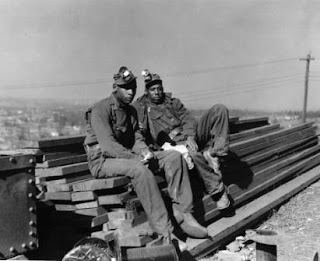
1930, At a Drought Relief at an African American Grocery, Drought Relief is providing African Americans with their everyday stuff but at an affordable price. Taking advantage of what they can get before the situation gets any worse, and to provide for their families with there needs-Stephanie Panesso















